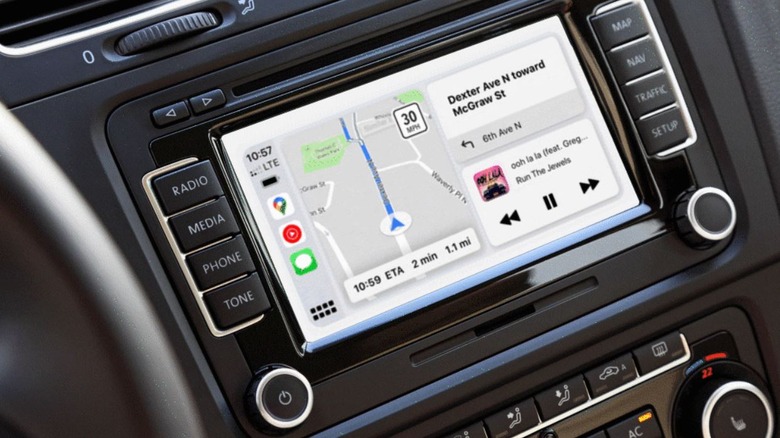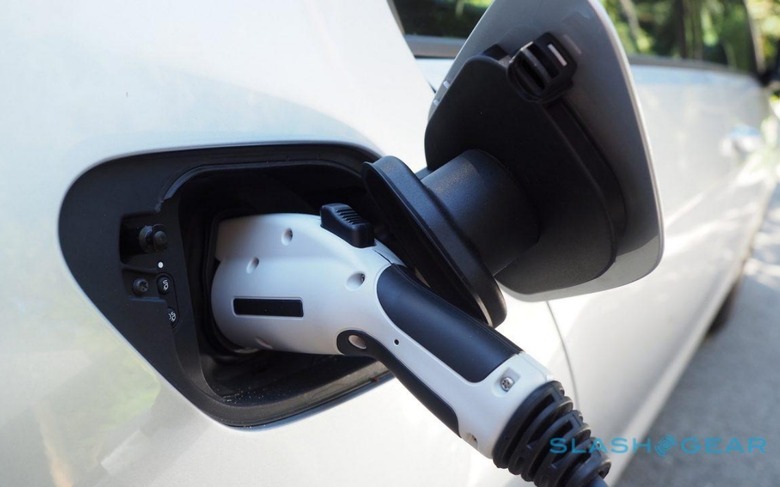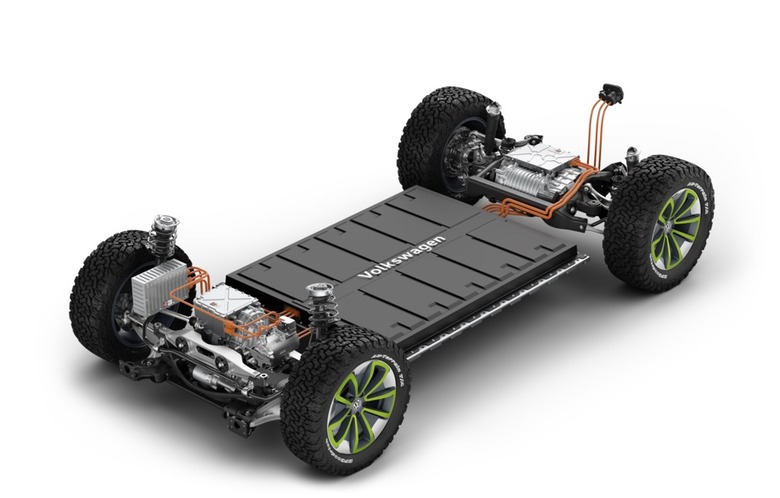If Apple Built A Breakthrough Battery, It Doesn't Need To Make Its Own Car
Some rumors just never seem to die, and the Apple car is shaping up to be an excellent example of that. Ever since the existence of Apple's Project Titan team was first revealed in 2014, we've seen a "will they, won't they" speculation frenzy as to just what the Cupertino firm has in mind, and what it intends to actually sell.
Initially, so the leaks go, Apple wanted to build its own car. The unnamed vehicle would be electric, it was suggested, and embrace autonomous driving technologies. Apple quietly dispatched a growing fleet of prototypes and test vehicles onto public roads, as it worked on what was assumed to be a comprehensive self-driving car system.
Later, though, those ambitions were said to be scaled back. A full Apple car, insiders suggested, was no longer the goal. Instead, the company had set its sights on the potentially lucrative automotive supply chain, stepping in to offer existing car-makers software for infotainment and ADAS (advanced driver assistance systems).

Apple CarPlay, it was suggested, was the first step toward staking a spot on the dashboard and beyond. Much as Google built Android Automotive to not only re-skin car companies' own infotainment systems, but power them altogether, so Apple wanted to bring its design expertise to how we interact with vehicles. Deeper still, its autonomous and semi-autonomous technologies could slot into existing automakers' ranges, much as they already turn to Bosch, BorgWarner, and others.
Now, though, the pendulum has swung back. The Apple car has parked up again on the roadmap, Reuters reported this week, with the company aiming for a 2024 or 2025 launch. Self-driving, electric, and blending third-party and in-house sensor designs – including LIDAR Scanner camera tech potentially borrowed from the iPhone 12 Pro and iPad Pro – the EV would distinguish itself not only by the Apple brand, so sources claimed, but its power source too.
That's an important detail. Certainly, there are few consumer brands with the heft that Apple brings to bear, and the cachet of the Apple logo can't be understated. Nonetheless, the car industry is notorious difficult to crack: margins are much lower than in consumer tech, the costs involved in research, development, tooling, and manufacture are vast and prone to ballooning, and even popular brands with in-demand product – Tesla being a good example – can go for years without turning a profit.

Apple's wildcard, it's suggested, is its electric vehicle's battery. That will use what's described as a "monocell" design, with bigger individual cells that allow the traditional pouches and modules of current EV batteries to be done away with. In the process, it's said, that saves on space and means more power density can be squeezed into the same overall size package.
Clearly, Apple is no stranger to battery technology, nor pushing its limits. Much of the company's range relies on dense lithium-ion packs and the power management to make the most of them. An electric vehicle battery might be exponentially larger than what's inside your iPhone 12 or your MacBook Air, but there's nothing to say that the same efficiency processes Apple refined for those consumer products couldn't also be brought to bear on vehicles too.
The big question, then, would be why Apple might feel the need to build the car around that battery at all. If it really has nailed the next growth stage in EV power tech – something most automakers are working on, with varying degrees of success – then that would be in high demand. Rather than having to build its own vehicle, and then convince drivers to purchase that, it could license out the technology to other EV-makers wanting to extend range and reduce their costs.

Apple's addiction to owning the whole vertical might be the wildcard, of course. We've seen that before, in its decision to build its own mobile device chipsets, customize its displays, and most recently oust Intel from its computers and build modems to replace those of Qualcomm. The company doesn't make components for other people, it builds them for itself to make its own products more distinctive and unique.
The automotive world isn't short on new entrants with the belief that they can make a splash where traditional players – a category which, at this point, arguably includes Tesla – have yet to capitalize. None arrive with the bank balance that Apple wields, nor indeed the fanatical approach to product. That obsession could make an incredible all-electric driverless vehicle with the Apple logo on the front; or, it could send the company into the depths of one of the most challenging industries around, responsible for sinking the ambitions of plenty of clever people.
If Apple has nailed the EV battery problem, then the smart money is on commercializing that technology. The fact that – if the latest rumors are to be believed – it's unwilling to settle for that, and wants to build the whole darn car too, suggests either ego, hubris, or game-changing innovation, if not a mix of all three. Nonetheless, with several years to go until this next leaked launch date, there's plenty of time for Project Titan to change course again.
